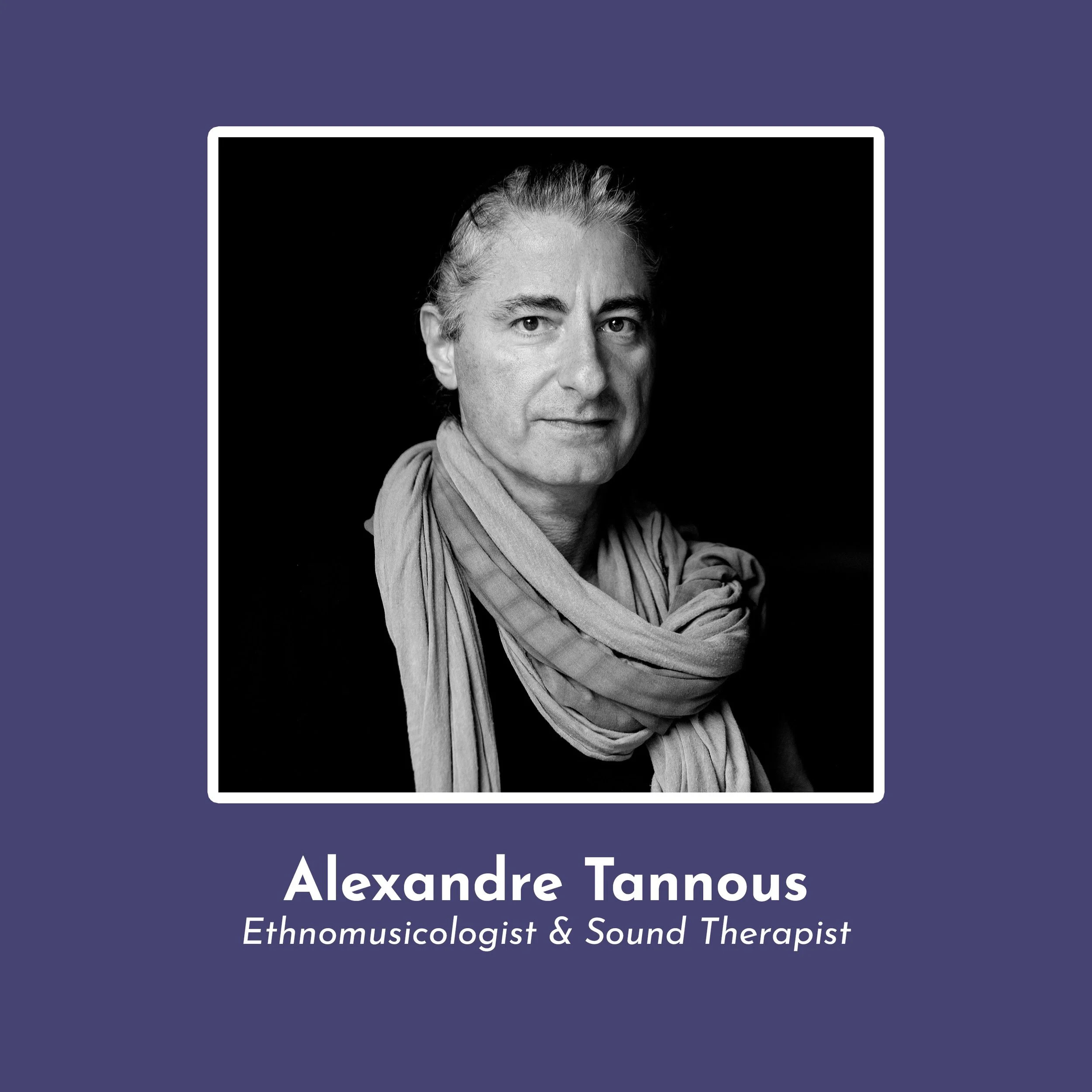Alexandre Tannous: "Sound Thinking: Using Music, Resonance, and Harmonics for Human Wellbeing”
Episode 128
June 19th, 2024
(Conversation recorded on May 1st, 2024)
Show Summary
Music has been an integral part of the human experience for thousands of years, and continues to embody a unique aspect of culture across the world today - yet most people hold only a preliminary understanding of the full range of benefits that sound, resonance, and harmonics can provide. Today, Nate is joined by ethnomusicologist Alexandre Tannous for a deep dive on the evolution of the human relationship with sound and how music could be used as a tool to facilitate personal resilience and healing. How can resonance quiet our reptilian fight-or-flight system and positively impact personal and group consciousness? When grounded in ceremony, how does music enhance spirituality and well-being for communities? What could a world look like in which every human has the access and energy to focus on healing themselves through the powerful tools of sound and meditation?
About Alexandre Tannous
Alexandre Tannous is an ethnomusicologist, sound therapist and sound researcher who holds four degrees in music, and years of experience performing, composing, conducting, teaching and lecturing on music. He has been investigating the therapeutic and esoteric properties of sound from three different perspectives - Western scientific, Eastern philosophical, and shamanic societal beliefs - to gain a deeper understanding of how, and to what extent, sound has been used to affect human consciousness.
The material he transmits about sound is based on multidisciplinary research conducted over 24 years. Inspired by his findings, he designed a protocol of an integrated experience he calls “Sound Meditation”, raising an awareness to how a specifically designed sound can have the ability to help us to disconnect from habitual patterns while judiciously listening to the overtone-rich instruments he plays. He uses a method that empowers the participants to engage actively with tools that enhance their experience.
Watch on YouTube
Show Notes & Links to Learn More
00:00 - Alexandre Tannous, Sound Meditation
07:32 - Ancient uses of music across cultures
10:31 - Mantra
11:22 - Neanderthal Flute
12:20 - Innate human connection with music
12:25 - Entrainment
14:09 - Acoustics
14:32 - Synesthesia
17:45 - Meditating alone vs in group
19:21 - Importance of ceremony in religion
20:07 - Overtones
21:22 - Social engineering
22:10 - Abrahamic religions
23:35 - Byzantine Chants
24:03 - Harmonics
28:02 - Resonance
29:07 - Evolutionary Psychology
29:24 - Humans prefer right/left symmetry in faces
30:25 - Humans consistently build big grand structures with alignment with astronomical events
31:13 - Mayan calendar
31:30 - The Yugas
32:32 - Logos
33:27 - Ervin Laszlo
35:25 - Gnosis
36:22 - Carl Jung
36:33 - Episteme
37:25 - Why Buddhism values suffering
37:53 - US opiate addictions
45:10 - Generational trauma
46:55 - The US lacks community institutions
47:25 - Brian Eno
55:32 - People become attached to what they listened to as an adolescent
56:36 - Most people don’t know how to listen to jazz
59:14 - Non-dual state
1:00:25 - Language creates the reality
1:07:05 - How physical structure makes our voice
1:12:38 - Primordial Aum
1:13:50 - Beliefs shout louder than facts
1:14:05 - Sounds predates language
1:14:40 - Animals sing for pleasure
1:16:50 - Notre Dame school of music, the birth of western harmony/functional harmony
1:18:13 - Tertian Harmony
1:19:14 - Non-western harmonies
1:21:45 - Inner feminine and the masculine
1:28:10 - Philip Glass, minimalist composers
1:30:08 - Familiarity makes us feel safe
1:35:45 - Westernization
1:41:22 - Recipe for bronze
1:45:25 - Why humans like bells
1:50:40 - We get addicted to anxiety and other suffering
1:52:19 - Tannous’ EEG studies
1:53:40 - Tanpura
1:54:22 - Itabla
1:56:39 - We all have trauma
2:07:54 - Autoimmune diseases
2:10:20 - Gut biome, how it affects everything else, how to support it (beyond food)
2:11:32 - Risks of psychedelics
2:16:11 - Tannous Sound meditation tracks, further recommendations
2:18:45 - Overtone singing
2:20:55 - How instruments get their unique sounds
2:23:14 - The importance of music to advertising, functional music
2:31:18 - Cognitive Dissonance, Leon Festinger
2:35:55 - Rupert Sheldrake, Iain McGilchrist, Isaac Newton
2:36:59 - Science of natural philosophy, McKenna Academy
